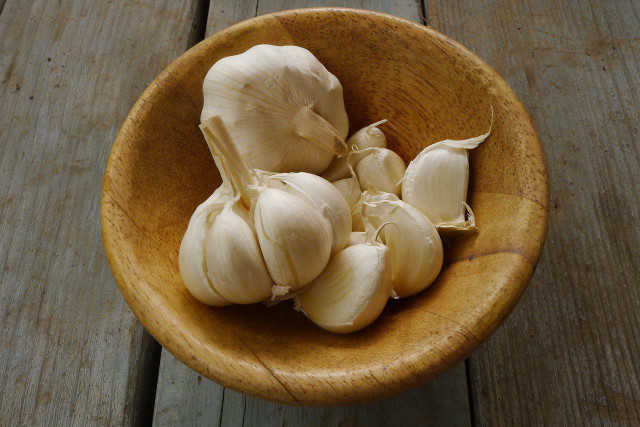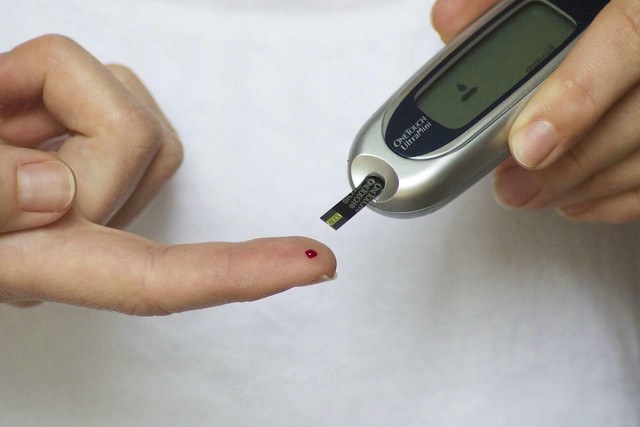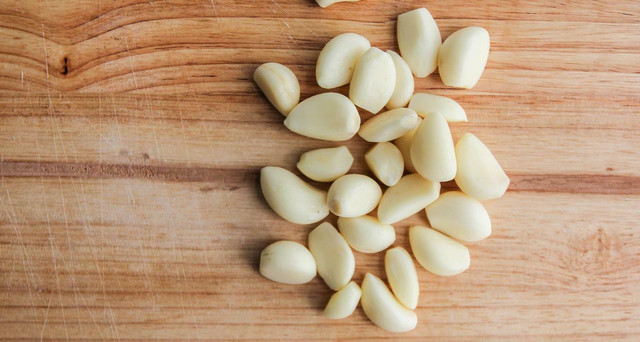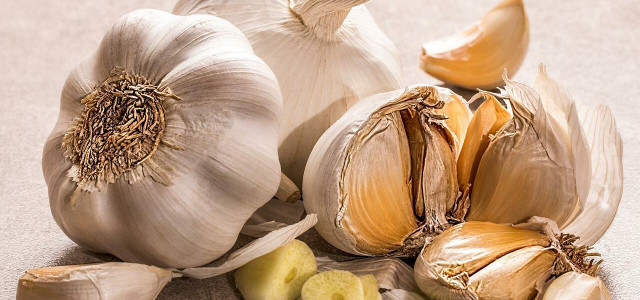Garlic is used in cooking for both its flavor and diverse range of health benefits. We'll look at some health benefits of raw garlic, and make some suggestions for recipe ideas.
Garlic is a bulbous flowering plant in the onion (Allium) family. It is a common ingredient in many dishes, and is often used as a base for many recipes. Garlic is commonly cooked by being sautéed, roasted, or baked in the oven. Roasted garlic tastes great as a hearty snack, in a spread, or as a vegan pizza topping for some extra heat.
Though much less common, garlic can also be consumed raw. Raw garlic has a much stronger flavor than cooked garlic, but it can be consumed safely. It is often added to sauces such as pesto and aioli, as well as other condiments or dressings. Recipe ideas for raw garlic include homemade pesto, or making garlic and ginger tea. Garlic has been used in cooking for centuries, and was commonly used a medical treatment in ancient cultures. Keep reading to find out the many cooked and raw garlic health benefits.
1. Boosts Immune System

(Foto: CC0 / Pixabay / renateko)
Garlic offers an immune system boost to help prevent colds and flus. Whole garlic is especially good at fighting colds as it contains a compound called alliin. When garlic cloves are crushed or chewed, this compound turns into allicin, which is the main active ingredient in garlic. This active ingredient has been found to boost the disease fighting response of some types of white blood cells in the body when they encounter viruses. Garlic also has antimicrobial and antibiotic properties, which means it could help your body fight off the growth of viruses and bacteria to prevent colds and flu.
2. May Reduce Cancer Risk



(Foto: CC0 / Pixabay / pameladebutler)
Another health benefit of garlic is that it has potential anticancer properties. Garlic is a good source of phytochemicals, which provide the body with protection from cell damage, and this may reduce your risk of getting certain cancers. Research shows that eating garlic as a way to consume phytochemicals can have anti-carcinogenic effects and can lower the risk for stomach and colorectal cancers in particular. Garlic is also packed full of antioxidants, which soak up the damaging free radicals in the body that can lead to diseases like cancer.
3. May Improve Heart Health



(Foto: CC0 / Pixabay / tomwieden)
Garlic is also thought to improve heart health. A 2019 study has found that garlic can lower blood pressure and decrease arterial stiffness for people with a condition called hypertension, if two capsules of garlic extract are consumed everyday day for two months. Another study shows the positive effects that garlic has on heart health, including preventing cell damage and lowering blood pressure.
4. Might Reduce Inflammation



(Foto: CC0 / Pixabay / TesaPhotography)
According to a 2020 study published in Phytotherapy Research, garlic is also known to reduce inflammation in the body. In a study of 70 women with the inflammatory autoimmune disease rheumatoid arthritis, the group of women who took 1,000 milligrams of garlic supplements per day for eight weeks had lower inflammation, less pain and fatigue, and fewer tender joints compared with the placebo group. Chronic inflammation in the body is linked to various chronic health conditions such as cancer, diabetes, and heart disease.
5. Reduce Blood Clotting



(Foto: CC0 / Pixabay / Counselling)
Garlic could also protect your arteries too, with studies showing that consumption of one clove of garlic a day could be beneficial in preventing thrombosis, a serious health condition associated with blood clotting. Eating garlic should not be the only preventative measure you take to reduce blood clotting, but also exercising regularly, and eating a healthy, balanced diet.
7. Lowers Cholesterol



(Foto: CC0 / Pixabay / Shutterbug75)
Garlic is also known to lower cholesterol, as it can reduce lipids in the blood. A 2016 study has found that consuming lemon juice plus half to one clove of garlic every day lowers cholesterol levels by approximately 10 percent. Adding more garlic to your diet could therefore be a way to help manage your cholesterol.
6. Improves Athletic Performance



(Foto: CC0 / Pixabay / Pexels)
In ancient cultures, garlic was traditionally used to improve the strength of workers and reduce symptoms of fatigue. Olympic athletes in Ancient Greece were even given garlic as ‘performance enhancing agents’. In a 2005 study, researches found that garlic had a positive effect on the exercise tolerance in patients with coronary artery disease. Therefore, adding garlic to your diet could be a way to help boost your strength and endurance.
7. Might Protect Against Osteoporosis



(Foto: CC0 / Pixabay / pasja1000)
Garlic may also support bone health by protecting against osteoporosis. The risk for osteoporosis increases with age, especially for women, and so garlic could be a beneficial addition to your diet. A 2017 study found that garlic slows the effects of osteoporosis in postmenopausal women, and that garlic consumption can reduce oxidative stress.
8. May Prevent Alzheimer’s Disease



(Foto: CC0 / Pixabay / geralt)
Garlic is also known to promote healthy brain function. A 2020 study has found that an aged extract of garlic may be effective at reducing the risk of developing Alzheimer’s disease. A study referenced therein has found that garlic can protect against cognitive and learning memory deficits. The study also showed how garlic’s antioxidant, anti-inflammatory, and modulatory properties can positively affect neurotransmitter function in the brain regions that are associated with the development of Alzheimer’s disease.
10. Clears Up Acne



(Foto: CC0 / Pixabay / Kjerstin_Michaela)
Garlic can also help to clear up skin conditions such as acne by killing acne causing bacteria. The antibacterial, antifungal, antiviral, and antiseptic properties from allicin can help to clear up acne, as well as reduce swelling and inflammation of the skin. A 2011 study shows that garlic can also be an effective treatment for various other skin conditions including aging, fungal infections, as well as for wound healing.
Caution: Avoid putting garlic on your face if you have sensitive skin, as this can cause burning or stinging.
11. High in Nutrients



(Foto: CC0 / Pixabay / postchiangmai0)
Garlic is packed full of vitamins and minerals which are essential for healthy bodily functions.
A single clove of raw garlic contains:
- Manganese: 0.75mg (2% of the RDA) Manganese is essential for bone health and development.
- Vitamin B6: 0.037mg (2% of the RDA). This vitamin affects the metabolism and central nervous system.
- Vitamin C: 0.936mg (1% of the RDA). Vitamin C is essential for a healthy immune system.
- Iron: 0.051mg (1% of the RDA). Iron is important for the production of red blood cells and muscle cells.
12. Improves Digestion



(Foto: CC0 / Pixabay / Alicia_Harper)
Garlic is also beneficial for improving digestive function. According to a 2013 study published in the Food Science & Human Wellness Journal, one of the major components in garlic, fructan, is known to act as a prebiotic in the gut. This means that it helps to promote the production of ‘good’ gut bacteria and overall aids digestive health.
Drawbacks of Garlic
For most people, the most prominent drawback of eating garlic is the strong and distinctive odor that lingers on your body, and in your mouth – otherwise known as garlic breath. Garlic is safe for most people to eat, although some people may experience side effects. Garlic can sometimes cause unwanted side effects such as bad breath, heartburn, gas, and diarrhea, and these effects are often more likely if you eat garlic raw compared to cooked.
Read more:
- Where Does Wild Garlic Grow? Where to Buy and Harvest It & How to Use It
- Fermented Black Garlic: The Trend, Uses, and Health Benefits
- 10 Tasty Ways To Use Garlic Shoots
Important Information regarding Health-related Topics.
** Links to retailers marked with ** or underlined orange are partially partner links: If you buy here, you actively support Utopia.org, because we will receive a small part of the sales proceeds. More info.Do you like this post?










